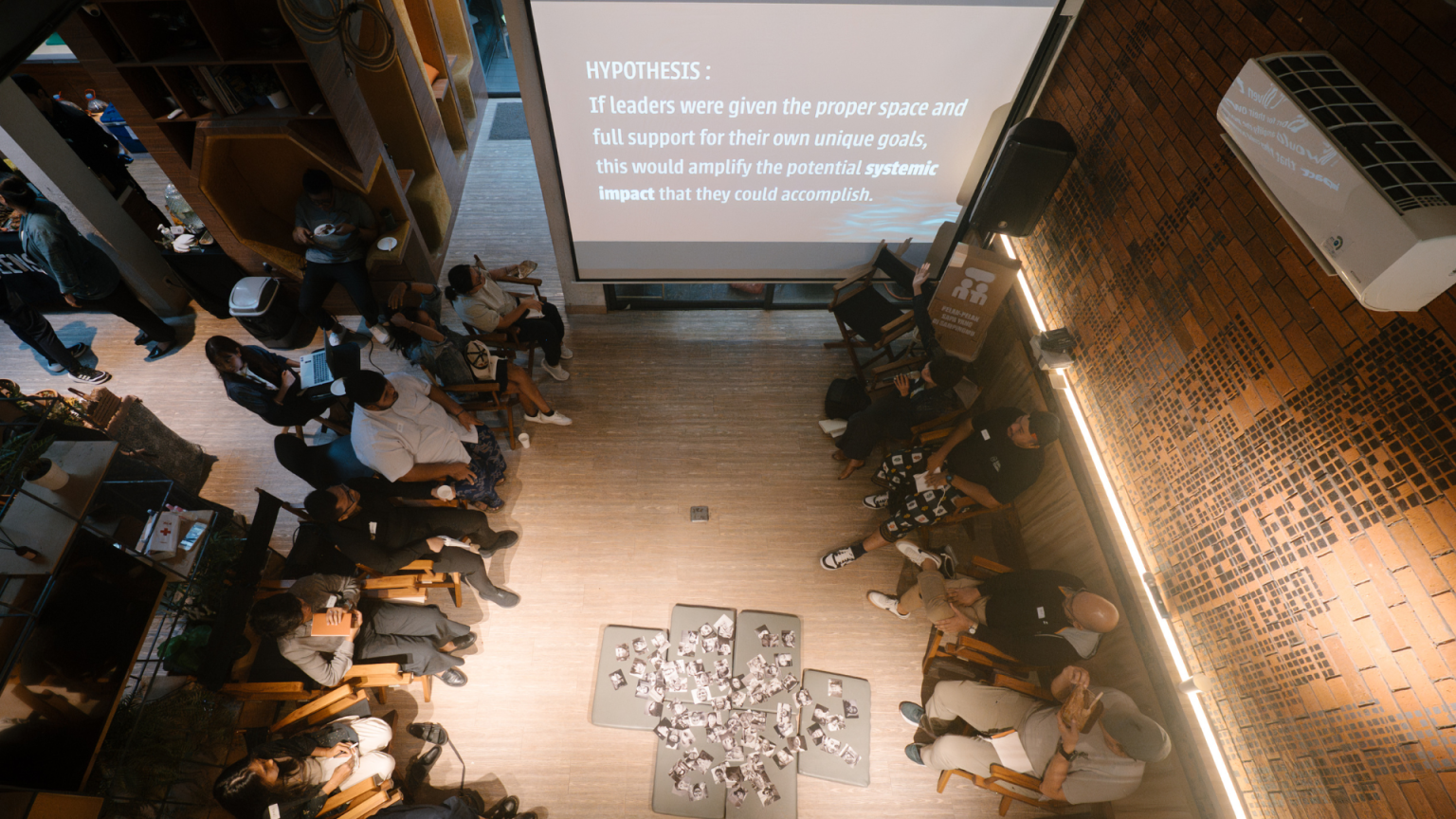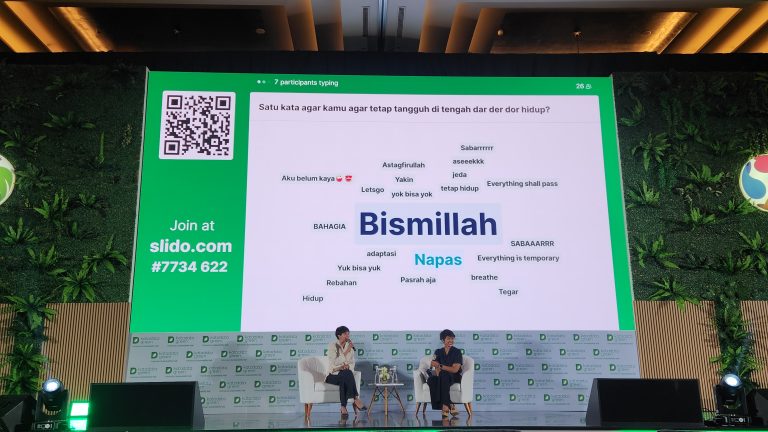This August 2025, Indonesia commemorated its 80th Independence Day. A milestone meant to awaken hope, freedom, and unity. We honor the sacrifices of those who fought for a nation where dignity and justice would belong to all. Yet today, the air feels heavy with another reality, one that stirs unspoken questions. Are we truly free? What does it mean to shape the future of this nation? Has the struggle ended, or has it simply taken new forms?
These questions linger not as signs of hopelessness or despair, but as proof that we still care deeply about the meaning of freedom and influence. They remind us that independence is not a finished chapter, but an unfolding story. One that each generation must revisit and redefine. To celebrate freedom honestly is to recognize both how far we have come and how far we still have to go.
In recent weeks, diverse voices have risen into public light. Labor unions have spoken on behalf of workers navigating fragile livelihoods. Civil society coalitions have amplified the needs of communities who feel left behind. Public figures and influencers have echoed what many citizens whisper privately: a longing for dignity, fairness, and accountability. Refusing silence, they insist on being seen and heard. Whether or not we agree with every detail of their demands, these voices carry something vital. They reveal that Indonesians still long to believe that their words and rights matter. That participation is not only symbolic but consequential.
And yet, alongside these expressions of courage, a clear gap has emerged. Across Indonesia, we see the difference between having a voice and influencing decisions. A voice can carry anger, frustration, or hope. It can fill the streets, occupy timelines, and inspire headlines. But influence requires something more. It calls for trust built over time, alliances across differences, and persistence strong enough to shift policies, budgets, and behaviors. Influence is not measured by volume or visibility alone. It is measured by endurance, by whether our voices last long enough, and remain clear enough, to shape what comes next.
True influence, then, is quieter and deeper. It begins with clarity, knowing what we stand for. It is resilience: choosing integrity over reaction. It is a connection: listening, bridging divides, and moving forward together. It is the conscious decision to work across differences in search of common ground, even when unity feels fragile. Resilience, in this sense, is not just survival but the steady force that keeps us anchored in humanity and truth.
The Practices that Sustain Influence
As Daniel Goleman’s framework on Emotional Intelligence reminds us, influence grows not from sheer willpower but from daily habits of mind and heart. These qualities are not abstract virtues; they are practical forms of resilience that allow us to remain steady in turbulence, to build trust across differences, and to sustain influence long enough for change to take root.
- Self-Awareness
The ability to name our emotions honestly such as anger, fear, exhaustion, without being consumed by them. Awareness creates space for reflection and healing. - Self-Regulation
Responding with clarity rather than reacting in rage. It is the discipline to choose patience over despair, integrity over impulse, even when provoked. - Motivation
The inner drive that anchors us to a vision of justice and dignity. Motivation reminds us why we keep moving forward, even when progress feels slow. - Empathy
Listening deeply to others, especially those whose experiences differ from our own. Empathy prevents polarization, strengthens solidarity, and keeps humanity at the center of our actions. - Social Skills
The ability to build trust, collaborate, and forge alliances. These skills transform shared grievances into shared solutions, helping movements endure beyond moments of protest.
Together, these five practices form the backbone of resilient influence. They remind us that resilience is not only personal strength but also the collective capacity to transform energy into momentum, and momentum into lasting change.
Resilience in Community and Rhythm
Resilience is not built in isolation. It grows through companionship, through communities that remind us we are not alone. It grows when students march not just for their own future but for the dignity of farmers and workers. It grows when neighbors show up for each other in times of difficulty, when faith communities offer not only prayer but solidarity, when artists use their craft to speak what words cannot. In these connections, we discover that resilience is not only personal but collective, that it is multiplied when shared.
This spirit of shared resilience echoes the Balinese philosophy of Tri Hita Karana, the harmony among Parahyangan (spiritual), Pawongan (social), and Palemahan (environmental). Together, they remind us that resilience must be holistic, grounded in relationship with God and the spiritual dimension of life, strengthened by solidarity with people and community, and sustained through care for nature and the environment (Subhaktiya et al., 2024). When these three dimensions are held in balance, resilience is not just survival, it becomes a way of living well, in harmony and dignity.
Resilience also requires rhythm. Like people, movements cannot always sprint. There are moments to rise, to speak, and to march forward, and there are moments to pause, to breathe, and to regain strength. Both are necessary. Independence, too, requires this rhythm. It is not a once-for-all victory but a living, breathing process, sustained by both action and reflection. To endure, we need spaces of renewal, where trust is nurtured, courage is restored, and clarity is regained before taking the next step.
Resilience, Independence, and the Spirit of Sumpah Pemuda
To call for resilience is not to romanticize struggle or glorify hardship. Resilience is not passive endurance or silent suffering. It is the courage to keep showing up with hope, even when the road ahead feels uncertain. It is the trust we place in shared humanity, even when solitude feels easier. It is the choice to hold fast to dignity, truth, and solidarity, again and again, until change begins to take root.
The independence we have now must mean more than remembrance. It is not only the freedom to speak, but the courage and patience to persist. It is not only the right to dream, but the will to keep working at those dreams, even when progress feels slow. Eighty years on, the story of Indonesia’s freedom is still being written. Its next chapters will be shaped not solely by ceremonies or symbols, but by the resilience of its people, our ability to speak truth with compassion, to bridge divides with courage, and to practice freedom daily in how we live, listen, and build.
As we carry the memory of 80 years of independence and move toward the 100th anniversary of Sumpah Pemuda in 2028, we are reminded that freedom is never finished, it must be practiced and renewed in every generation. The pledge of unity made by the youth a century ago planted the seed of resilience that carried Indonesia to independence. That same spirit must guide us today as we work toward Indonesia Emas 2045, a just, dignified, and prosperous nation at its 100-year milestone. The resilience we nurture now, in listening, in building, and in persisting together across differences, will determine whether that golden future becomes a shared reality.





